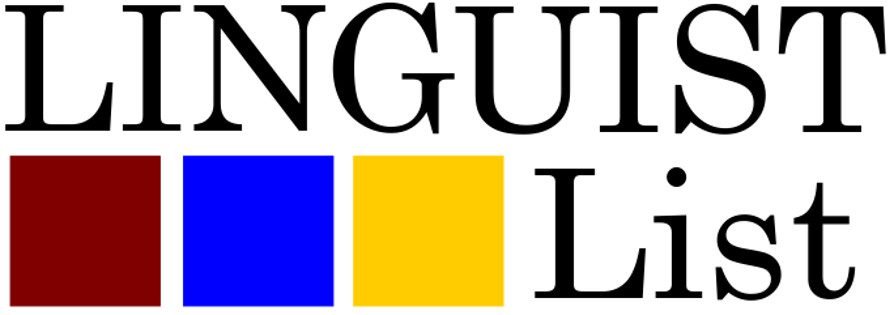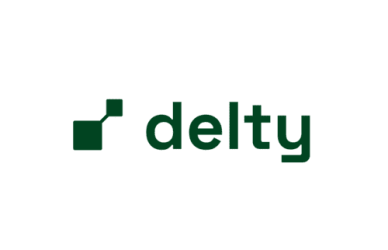Latest Job Opportunities in India
Discover top job listings and career opportunities across India. Stay updated with the latest openings in IT, government, and more.
Check Out Jobs!Read More
✨ Post -Language and Language Learning Fellow, Uit the Arctic University in Norway
shared
Job Site: Tromsu, Norway
Web address: https://en.uit.no/enhet/isk?
Job title: A post -doctoral colleague in multi -language learning and language learning
Job rank: Post Duck
Specialized fields: Applied Linguistics; General linguistics; Language acquisition
Specialized Language: English (Engineer)
Norwegian (nor)
Norwegian Botkol (Nub)
Norwegas Ninusk (NNO)
Other disciplines: pluralism, pluralism, second language acquisition, third language acquisition, simultaneous acquisition, closely related items
a description:
position:
The post -PhD research colleague is available in the Department of Language and Culture and the Faculty of Humanities, Social Sciences and Education at Uit University at the Arctic University in Norway. The situation belongs to the center of language, brain and learning (C-LABL), and more specifically the field of learning (see more detailed description below). C-Albl is funded by TROND Mohn in the period 2024-2029.
Expected start date: January 2026 or before.
The situation is a specific position for 3 years. The appointment of post -PhD research aims to provide a qualification to work in higher academic positions. It is common for the applicant to implement the project over the full work period. No one may occupy more than one fixed position in the fixed term as a post -PhD research in the same institution.
The workplace at Uit in Tromsu. You should be able to start the position during a reasonable period of time after receiving the offer.
project:
Postdoc is part of the C-LBL learning field. This field studies the interaction between linguistic pluralism and learning within individuals, and exploring how the linguistic distance between languages interacts with exposure to language and experience, with a clear focus on educational aspects such as literacy and academic achievement. To achieve this purpose, we will do a series of carefully planned and carefully planned interventions to take advantage of different aspects of linguistic efficiency. We will collect basic information by combining detailed questionnaires about exposure to language and experience with the registration data available from Norway statistics and linking them to the standards of linguistic efficiency and the results of the acquisition to assess its relative effect. The search in the first place will be a position within the Norwegian school system, and is already a single sub -project, and explores how Norwegian children and adolescents are acquired.
We welcome applications from candidates interested in exploring efficiency in closely related language items (multi -part), parallel learning, or a combination of the two.
The Norwegian linguistic situation provides unique opportunities to research pluralism. The use of the dialect is widespread through both the spoken and written contexts, and Norway also has written criteria, Buccol and Ninrsk, which is found in an asymmetric relationship geographically. As a result, linguistic experiences for children and youth vary across regions in more complicated ways than in many other countries. One of the possible research research is to study how this difference is linked to other aspects of language learning, including awareness and metal learning in general.
Learning the parallel language refers to the situations in which the child should learn (from school age and etc.) or with two new two languages at the same time. This is a reality for many new arrivals to Norway, where success in school and society often requires Norwegian and English. Although it is still unstable, the parallel language learning shares important features with other acquisition scenarios, such as the two simultaneous language and learning of the second or third language. Possible research questions include how to acquire two languages in parallel with older children and adults, to what extent they affect each other, and how previous English knowledge constitutes the Norwegian acquisition process – as well as how Norwegian’s insertion affects the continued development of the English language. Other central questions are related to the role of pre -acquired languages and the impact of the linguistic distance in this process. The relevant additional issue is how the parallel language learning is formed through the local linguistic situation in Norway, which naturally brings a multi -porridge perspective.
It is expected that the candidate will contribute to planning the new aspects of the project while it is evolving. They will work closely with the research team, but they also need to be able to work independently and take daily responsibility for project management. The duties include contributing to the employment of the participants; Planning and implementing field work (including schools and/or other relevant settings); Organizing and analyzing data collections; Spreading results and cooperation with other researchers in the field of learning and C-LBL as a whole.
Qualifications:
Required qualifications:
A complete doctorate degree in linguistics, linguistic education, applied linguistics, psychology or other relevant field that includes language science. If you are in the final stages of the doctorate, you can still apply for the position, provided that you submit parts of your thesis with your request. This enables the evaluation committee to evaluate the quality and the possibility of completing the date of the required employment. You must include a statement from the supervisor or your organization that shows the expected completion date for a doctorate degree. A complete doctoral degree documents must be submitted before starting.
Experience with experimental methods in language research.
Fluency in the English language. Northern applicants can document their capabilities by attaching the high school diploma.
Required qualifications:
High driving/efficiency of statistical modeling and relevant programs
The experience of working with young population and multi -language adults
A good work leadership for the Norwegian language or another Scandinavian language (Danish or Swedish)
Knowledge of other languages is one of the origins
In the evaluation, the main focus will be attached to the actions of the qualified work. The focus of the experiment must also be attached from the circular/publishing, academic policy and administrative activity.
During the evaluation, the focus will be on the candidate’s motive, the possibility of searching, and the personal suitability of this position. We are looking for candidates:
You have good cooperation skills
You have a good connection and interaction with colleagues and students
He wants to contribute to a good work environment
In Uit, we focused on the quality, importance and importance of research work and not on the place where the work is published, according to the principles of San Francisco’s announcement on research evaluation (Dora).
to request:
It should include your request:
Application letter
– A statement/context proposal (MAX 2 pages), in detail how the candidate that conducted the research conducted in C-LBL (including investigations through the fields).
– Statement/context proposal, in detail, how the candidate plans to contribute to research in the field of learning (2-3 pages).
– CV (which contains a full overview of education, vocational training subject to supervision and vocational work, in addition to the list of publications).
Dubbed and text (all grades)
Documenting English efficiency
Contact information to 3-4 references
– A list of your academic production
Description of your academic production, which is said about the work you consider more important
Three samples of published works or other professional writings.
Academic works (published or not) want to take into account the evaluation
If you are in the final stages of the doctorate, you can still apply for the position, provided that you submit parts of your thesis with your request. This enables the evaluation committee to evaluate the quality and the possibility of completing the date of the required employment. You must include a statement from the supervisor or your organization that shows the expected completion date for a doctorate degree. A complete doctoral degree documents must be submitted before starting. Experience with experimental methods in language research.
All documents that must be observed in language or Scandinavian English should be. If the efficiency of the English language is not documented in the application, it should be documented before starting the position. We only accept requests and documents sent via Jobbnorge during the deadline for applying.
appreciation:
Applicants will be evaluated by the Experts Committee. The committee’s mandate is to conduct an evaluation of the qualifications of applicants based on the written materials provided by the applicants, and the detailed description of the description.
Applicants who are evaluated as the best qualified will be called to an interview. The interview should be aimed at among other things to clarify the applicant’s motive and personal suitability for this position. A trial lecture can also be held.
Application deadline: 15-call-2025
Web address for applications: https://www.jobbnorge.no/en/available-jobs/job/285635/postdoctora-research-floyselly-in-multingualism-and-anguage- learning
Application Instructions:
to request:
It should include your request:
Application letter
– A statement/context proposal (MAX 2 pages), in detail how the candidate that conducted the research conducted in C-LBL (including investigations through the fields).
– Statement/context proposal, in detail, how the candidate plans to contribute to research in the field of learning (2-3 pages).
– CV (which contains a full overview of education, vocational training subject to supervision and vocational work, in addition to the list of publications).
Dubbed and text (all grades)
Documenting English efficiency
Contact information to 3-4 references
– A list of your academic production
Description of your academic production, which is said about the work you consider more important
Three samples of published works or other professional writings.
Academic works (published or not) want to take into account the evaluation
If you are in the final stages of the doctorate, you can still apply for the position, provided that you submit parts of your thesis with your request. This enables the evaluation committee to evaluate the quality and the possibility of completing the date of the required employment. You must include a statement from the supervisor or your organization that shows the expected completion date for a doctorate degree. A complete doctoral degree documents must be submitted before starting. Experience with experimental methods in language research.
All documents that must be observed in language or Scandinavian English should be. If the efficiency of the English language is not documented in the application, it should be documented before starting the position. We only accept requests and documents sent via Jobbnorge during the deadline for applying.
Contact information:
Mert Brendford Andersen
Email: (Email protected)
Phone: +4777644254
📌 Read more at: Full Article
Tags: #Post #Language #Language #Learning #Fellow #Uit #Arctic #University #Norway
📰 Published by on 2025-09-16 18:35:00
From: The LINGUIST List: Jobs
✨ Post -Language and Language Learning Fellow, Uit the Arctic University in Norway
uncovered
Job Site: Tromsu, Norway
Web address: https://en.uit.no/enhet/isk?
Job title: A post -doctoral colleague in multi -language learning and language learning
Job rank: Post Duck
Specialized fields: Applied Linguistics; General linguistics; Language acquisition
Specialized Language: English (Engineer)
Norwegian (nor)
Norwegian Botkol (Nub)
Norwegas Ninusk (NNO)
Other disciplines: pluralism, pluralism, second language acquisition, third language acquisition, simultaneous acquisition, closely related items
a description:
position:
The post -PhD research colleague is available in the Department of Language and Culture and the Faculty of Humanities, Social Sciences and Education at Uit University at the Arctic University in Norway. The situation belongs to the center of language, brain and learning (C-LABL), and more specifically the field of learning (see more detailed description below). C-Albl is funded by TROND Mohn in the period 2024-2029.
Expected start date: January 2026 or before.
The situation is a specific position for 3 years. The appointment of post -PhD research aims to provide a qualification to work in higher academic positions. It is common for the applicant to implement the project over the full work period. No one may occupy more than one fixed position in the fixed term as a post -PhD research in the same institution.
The workplace at Uit in Tromsu. You should be able to start the position during a reasonable period of time after receiving the offer.
project:
Postdoc is part of the C-LBL learning field. This field studies the interaction between linguistic pluralism and learning within individuals, and exploring how the linguistic distance between languages interacts with exposure to language and experience, with a clear focus on educational aspects such as literacy and academic achievement. To achieve this purpose, we will do a series of carefully planned and carefully planned interventions to take advantage of different aspects of linguistic efficiency. We will collect basic information by combining detailed questionnaires about exposure to language and experience with the registration data available from Norway statistics and linking them to the standards of linguistic efficiency and the results of the acquisition to assess its relative effect. The search in the first place will be a position within the Norwegian school system, and is already a single sub -project, and explores how Norwegian children and adolescents are acquired.
We welcome applications from candidates interested in exploring efficiency in closely related language items (multi -part), parallel learning, or a combination of the two.
The Norwegian linguistic situation provides unique opportunities to research pluralism. The use of the dialect is widespread through both the spoken and written contexts, and Norway also has written criteria, Buccol and Ninrsk, which is found in an asymmetric relationship geographically. As a result, linguistic experiences for children and youth vary across regions in more complicated ways than in many other countries. One of the possible research research is to study how this difference is linked to other aspects of language learning, including awareness and metal learning in general.
Learning the parallel language refers to the situations in which the child should learn (from school age and etc.) or with two new two languages at the same time. This is a reality for many new arrivals to Norway, where success in school and society often requires Norwegian and English. Although it is still unstable, the parallel language learning shares important features with other acquisition scenarios, such as the two simultaneous language and learning of the second or third language. Possible research questions include how to acquire two languages in parallel with older children and adults, to what extent they affect each other, and how previous English knowledge constitutes the Norwegian acquisition process – as well as how Norwegian’s insertion affects the continued development of the English language. Other central questions are related to the role of pre -acquired languages and the impact of the linguistic distance in this process. The relevant additional issue is how the parallel language learning is formed through the local linguistic situation in Norway, which naturally brings a multi -porridge perspective.
It is expected that the candidate will contribute to planning the new aspects of the project while it is evolving. They will work closely with the research team, but they also need to be able to work independently and take daily responsibility for project management. The duties include contributing to the employment of the participants; Planning and implementing field work (including schools and/or other relevant settings); Organizing and analyzing data collections; Spreading results and cooperation with other researchers in the field of learning and C-LBL as a whole.
Qualifications:
Required qualifications:
A complete doctorate degree in linguistics, linguistic education, applied linguistics, psychology or other relevant field that includes language science. If you are in the final stages of the doctorate, you can still apply for the position, provided that you submit parts of your thesis with your request. This enables the evaluation committee to evaluate the quality and the possibility of completing the date of the required employment. You must include a statement from the supervisor or your organization that shows the expected completion date for a doctorate degree. A complete doctoral degree documents must be submitted before starting.
Experience with experimental methods in language research.
Fluency in the English language. Northern applicants can document their capabilities by attaching the high school diploma.
Required qualifications:
High driving/efficiency of statistical modeling and relevant programs
The experience of working with young population and multi -language adults
A good work leadership for the Norwegian language or another Scandinavian language (Danish or Swedish)
Knowledge of other languages is one of the origins
In the evaluation, the main focus will be attached to the actions of the qualified work. The focus of the experiment must also be attached from the circular/publishing, academic policy and administrative activity.
During the evaluation, the focus will be on the candidate’s motive, the possibility of searching, and the personal suitability of this position. We are looking for candidates:
You have good cooperation skills
You have a good connection and interaction with colleagues and students
He wants to contribute to a good work environment
In Uit, we focused on the quality, importance and importance of research work and not on the place where the work is published, according to the principles of San Francisco’s announcement on research evaluation (Dora).
to request:
It should include your request:
Application letter
– A statement/context proposal (MAX 2 pages), in detail how the candidate that conducted the research conducted in C-LBL (including investigations through the fields).
– Statement/context proposal, in detail, how the candidate plans to contribute to research in the field of learning (2-3 pages).
– CV (which contains a full overview of education, vocational training subject to supervision and vocational work, in addition to the list of publications).
Dubbed and text (all grades)
Documenting English efficiency
Contact information to 3-4 references
– A list of your academic production
Description of your academic production, which is said about the work you consider more important
Three samples of published works or other professional writings.
Academic works (published or not) want to take into account the evaluation
If you are in the final stages of the doctorate, you can still apply for the position, provided that you submit parts of your thesis with your request. This enables the evaluation committee to evaluate the quality and the possibility of completing the date of the required employment. You must include a statement from the supervisor or your organization that shows the expected completion date for a doctorate degree. A complete doctoral degree documents must be submitted before starting. Experience with experimental methods in language research.
All documents that must be observed in language or Scandinavian English should be. If the efficiency of the English language is not documented in the application, it should be documented before starting the position. We only accept requests and documents sent via Jobbnorge during the deadline for applying.
appreciation:
Applicants will be evaluated by the Experts Committee. The committee’s mandate is to conduct an evaluation of the qualifications of applicants based on the written materials provided by the applicants, and the detailed description of the description.
Applicants who are evaluated as the best qualified will be called to an interview. The interview should be aimed at among other things to clarify the applicant’s motive and personal suitability for this position. A trial lecture can also be held.
Application deadline: 15-call-2025
Web address for applications: https://www.jobbnorge.no/en/available-jobs/job/285635/postdoctora-research-floyselly-in-multingualism-and-anguage- learning
Application Instructions:
to request:
It should include your request:
Application letter
– A statement/context proposal (MAX 2 pages), in detail how the candidate that conducted the research conducted in C-LBL (including investigations through the fields).
– Statement/context proposal, in detail, how the candidate plans to contribute to research in the field of learning (2-3 pages).
– CV (which contains a full overview of education, vocational training subject to supervision and vocational work, in addition to the list of publications).
Dubbed and text (all grades)
Documenting English efficiency
Contact information to 3-4 references
– A list of your academic production
Description of your academic production, which is said about the work you consider more important
Three samples of published works or other professional writings.
Academic works (published or not) want to take into account the evaluation
If you are in the final stages of the doctorate, you can still apply for the position, provided that you submit parts of your thesis with your request. This enables the evaluation committee to evaluate the quality and the possibility of completing the date of the required employment. You must include a statement from the supervisor or your organization that shows the expected completion date for a doctorate degree. A complete doctoral degree documents must be submitted before starting. Experience with experimental methods in language research.
All documents that must be observed in language or Scandinavian English should be. If the efficiency of the English language is not documented in the application, it should be documented before starting the position. We only accept requests and documents sent via Jobbnorge during the deadline for applying.
Contact information:
Mert Brendford Andersen
Email: (Email protected)
Phone: +4777644254
🔗 Read more at: Source
Hashtags: #Post #Language #Language #Learning #Fellow #Uit #Arctic #University #Norway
📰 Published by on 2025-09-16 18:35:00
Source Feed: The LINGUIST List: Jobs





